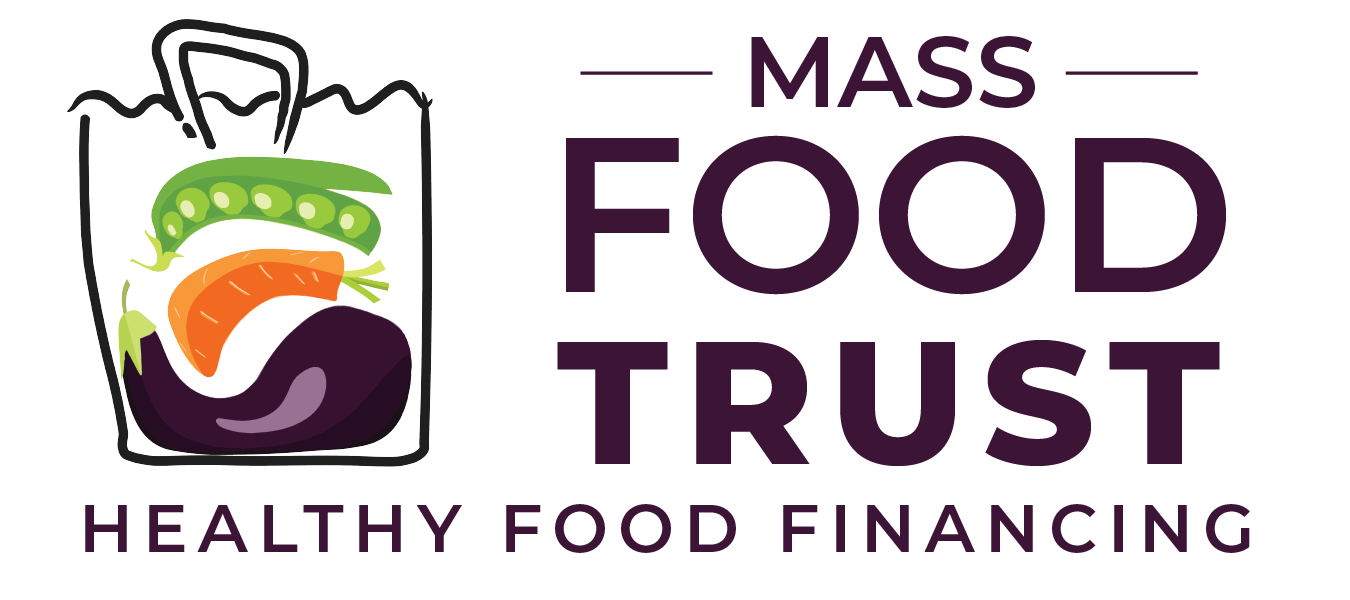Eligibility Criteria
Increasing access
one pint at a time
To be eligible for the Mass Food Trust Program, projects must:
Increase access to healthy, affordable food retail for low- to moderate-income communities
Expand food access in neighborhoods that are underserved by grocery retail
Accept SNAP
Fit local community needs
Click here to access a downloadable PDF version of these criteria
Criteria to apply:
Operate and provide service in Massachusetts
Provide or support the availability of high-quality, affordable, and nutritious groceries in an area where there is limited access to it
Serve a majority of customers from areas designated as USDA food deserts and/or areas of high poverty, high unemployment, or low-and-moderate incomes, as defined by the CDFI Fund as “Investment Areas”
Demonstrate engagement and support from residents and a commitment to bringing a positive economic and social impact to the community*
Accept federal and state benefits (e.g. SNAP, WIC, or HIP) . Some exceptions may apply.
Include an experienced manager on the team, ideally with three or more years managing a healthy food project
Work with other state and local programs as much as possible
Be financially sustainable
Note: Applicants may be for-profit, non-profit, or cooperative entities.
Click here to access a downloadable PDF of the criteria.
* Funded projects will be required to submit an impact statement to the program each year to describe the positive economic and social impact that the project is providing the community through job training and employment practices, ownership by women and people of color, information on the veteran status of ownership and full-time employees and other factors. Failure to show positive economic and social impact may be a cause for discontinuing financial assistance to the recipient.
-
Grocery stores
Corner stores
Food co-ops open to the public without requiring membership
Farmers markets and mobile markets
Food hubs, community kitchens, indoor and outdoor greenhouses, and other infrastructure for gathering, preparing, and distributing healthy food for retail in low- to moderate-income (LMI) communities without adequate grocery access.
*Note: Applicants may be for-profit, nonprofit, or cooperative entities.
-
Operations that provide free food
Restaurants
-
Financing may be used for the development, renovation, or expansion of a business that increases access to healthy, affordable food for a low- to moderate-income community that is underserved by grocery retail.
Eligible purchases include equipment and other capital expenses, real estate, tenant improvement, infrastructure, working capital, construction costs and consultant fees associated with sustaining or increasing food access.
-
Audits or design work for projects without clear linkage to a future loan.
General operations and recurring expenses such as inventory, wages, and rent.
Reimbursement for project costs already incurred.
The program is not intended for emergency food projects (organizations that provide participants with free food).
Coastal Foodshed, 2019 awardee
Preference will be given to projects that meet all eligibility requirements and:
Build wealth within communities most affected by lack of healthy food access,
Enhance equity
Contribute to Massachusetts’ local food system,
Benefit our environment
Additional consideration will be given to applicants who may not have previously received funding from other state programs, such as MDAR’s Food Ventures Program, in order to broaden access to the funds.
Funding decisions will also be reflective of the desire for diversity in projects and places (urban, suburban, and rural areas) across the Commonwealth.
Applicants are Encouraged to Demonstrate the Following:
-
and where possible, increases business opportunities for Minority Business Enterprises, Women Business Enterprises, Service-Disabled Veteran Business Enterprises, Veteran Business Enterprises, Lesbian, Gay, Bisexual, and Transgender Business Enterprises; and Disability-Owned Business Enterprises.
-
Hire employees from the surrounding neighborhoods.
-
Please refer to the MIT Living Wage Calculator for your region.
-
Source from Massachusetts based and owned farms, fisheries, producers.
-
Customers can access the establishment by public transit.
-
A demonstrated history of including local communities and customers into its operations and business development.


